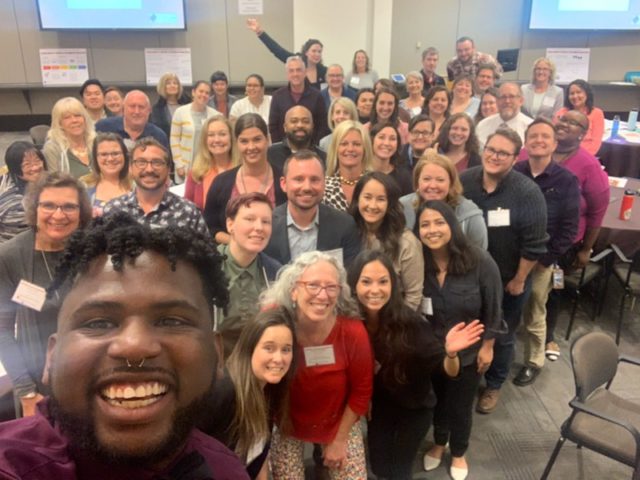When we talk about the thousands of unaccompanied youth and young adults experiencing homelessness in our state, it’s critical to talk about the young people who are overrepresented in homelessness. Across the country, LGBTQ+ young people make up roughly 5-10% of the population, but 40% of young people experiencing homelessness identify as LGBTQ+. We cannot ignore this injustice if we truly want to do right by all young people.
The Center for Children and Youth Justice (CCYJ) launched eQuality in 2013, a project to better understand the needs of LGBTQ+ youth and find better ways to serve them across different systems. We caught up with Nicholas Oakley, Sr. Programs Manager/Policy Counsel, to hear more about the project.

“All aspects of a young person’s identity impact their experiences and their outcomes,” said Nicholas. “The moment we create safe, affirming environments for LGBTQ+ young people, we’re creating a path for them thrive.”
Through eQuality, CCYJ has spoken to LGBTQ+ individuals with personal experience in the juvenile justice and child welfare systems, as well as system professionals and service providers. The organization created the Protocol for Safe and Affirming Care based on these findings. The protocol includes asking all youth their sexual orientation and gender identity when they access services or systems.
“You don’t count unless you’re counted,” said Nicholas. “We need data to show that safe and affirming services for LGBTQ+ young people are a pressing need across all systems.”
The data collected by the eQuality project confirms the intersection between LGBTQ+ identity and homelessness. Any effort to end youth and young adult homelessness needs to serve the needs of the LGBTQ+ community, and our Anchor Community Initiative is no exception. The first step of our work is achieving quality, real-time data, and part of this milestone means that Anchor Communities must collect sexual orientation and gender identity data in a culturally appropriate and responsive way.
LGBTQ+ young people live in every community, and they deserve to have their identities valued. Service providers and state agencies need to invest in educating staff at all levels on the importance of affirming LGBTQ+ young people’s identities and training staff to serve these young people with respect. The impact of culturally competent service cannot be overstated – for instance, calling transgender teens by their chosen name lowers suicide rates.
“At a time when identity politics are under attack, we need to stand up for LGBTQ+ young people,” said Nicholas. “This is not a political issue. This is an issue of our young people’s health, safety and well-being.”

Leave a Reply